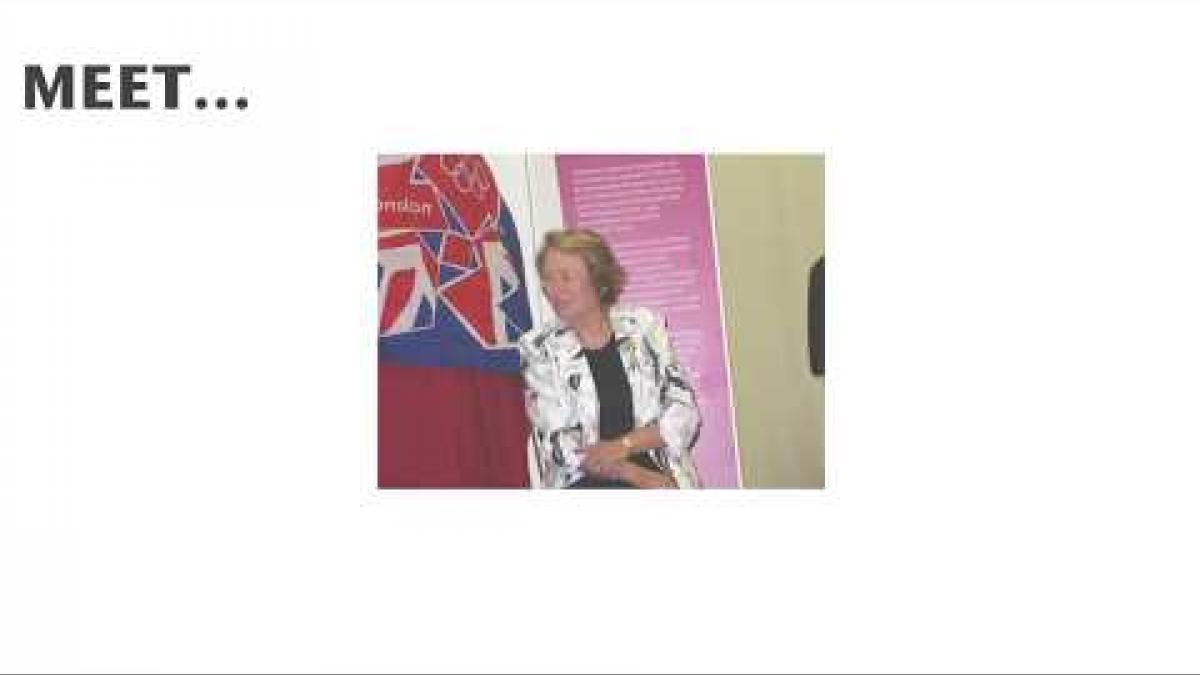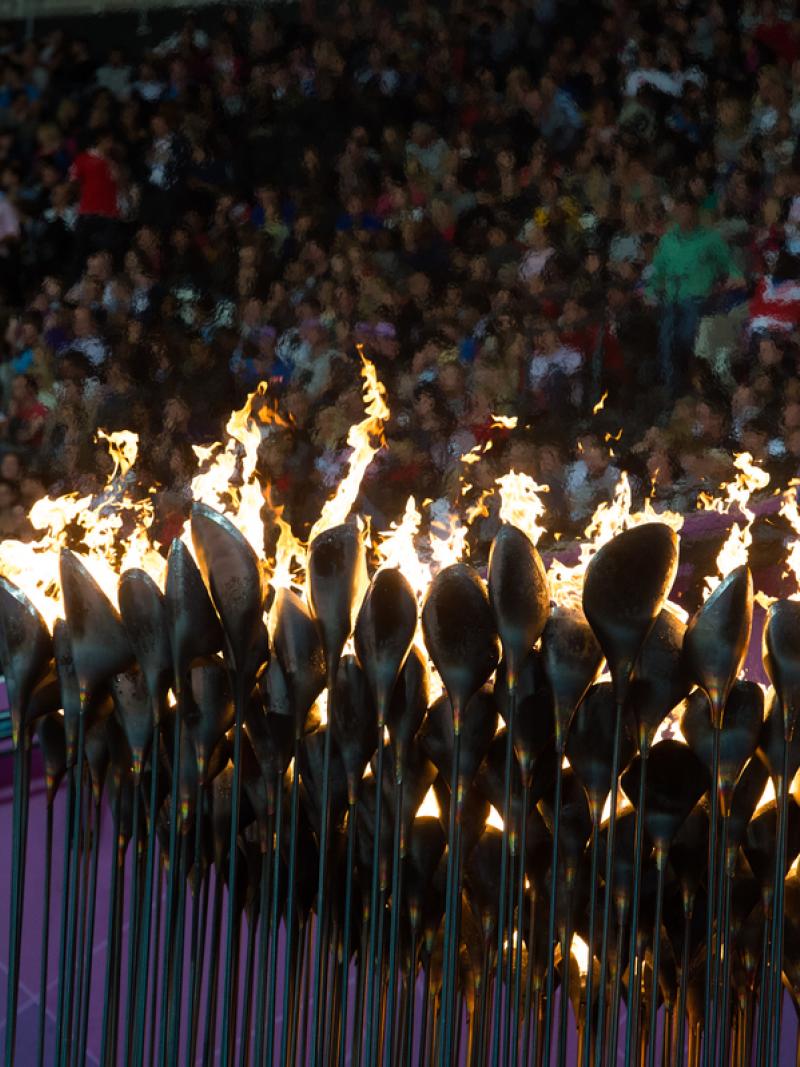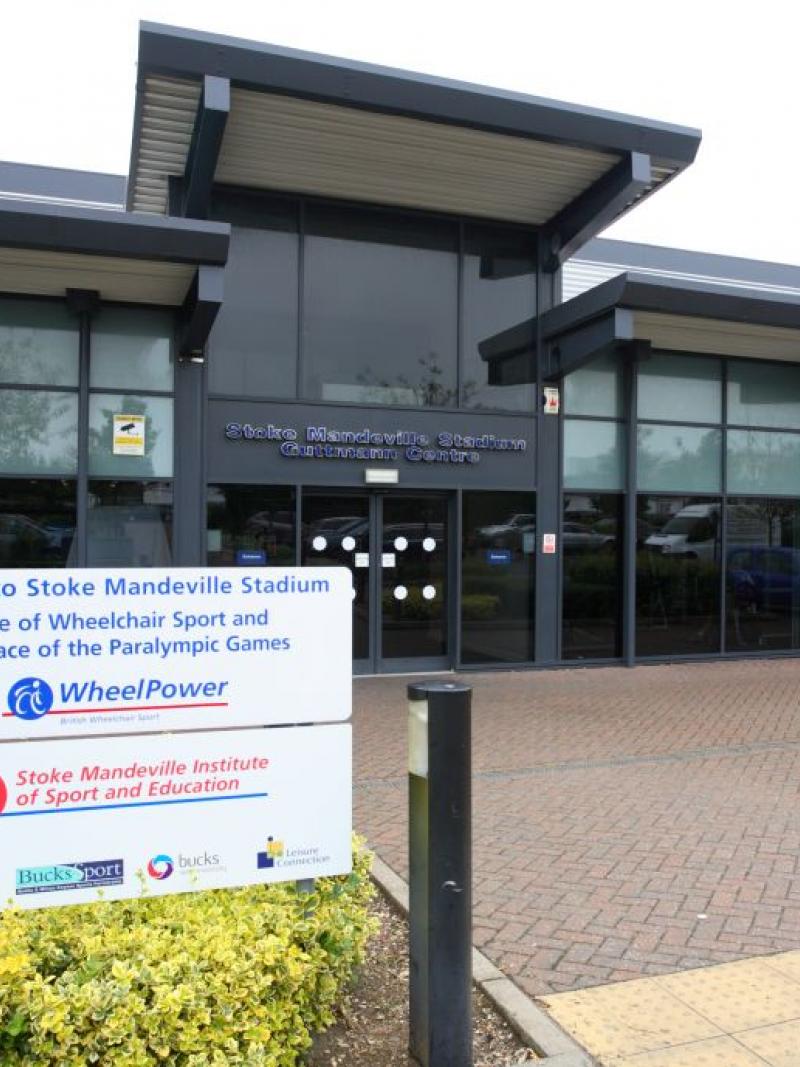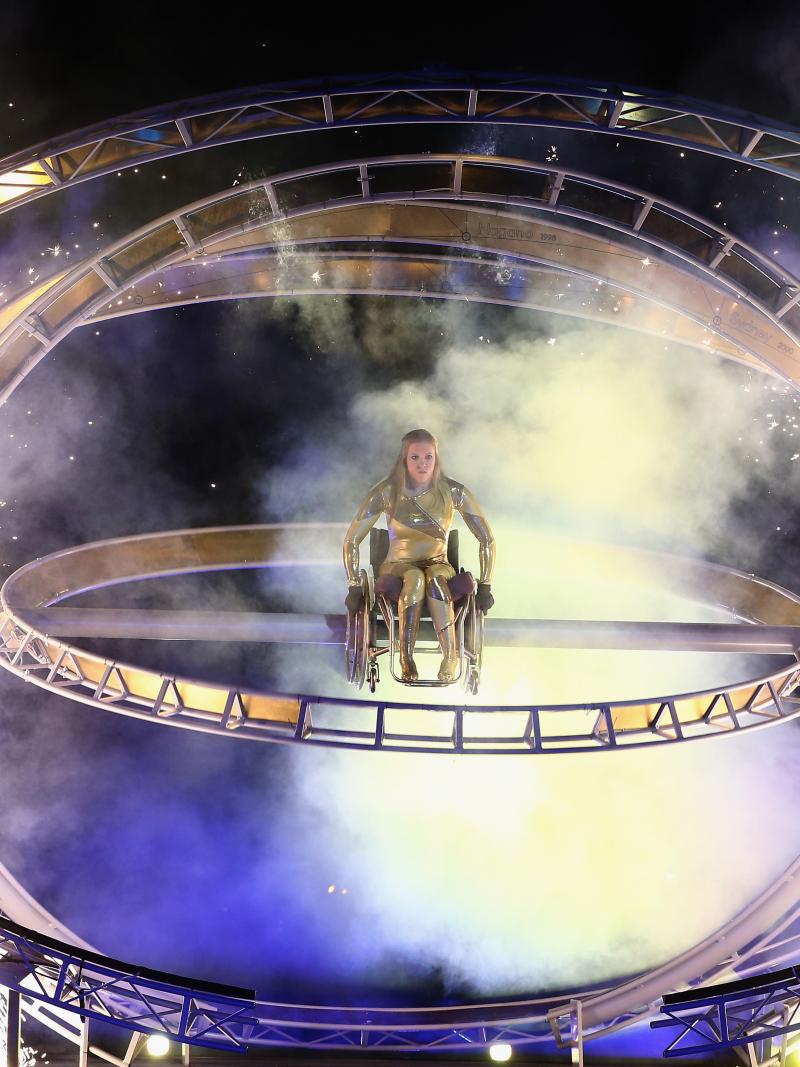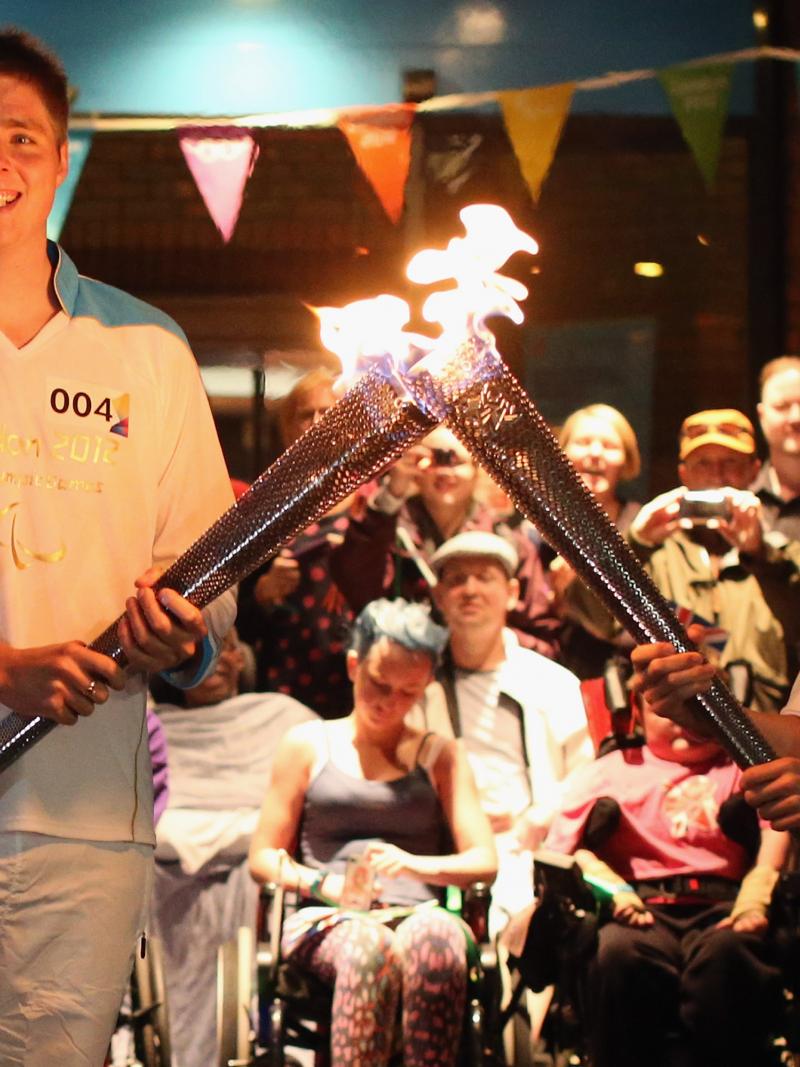Paralympic Flame to be created at Stoke Mandeville for all future Paralympic Games
New event aims to increase Stoke Mandeville’s status as the birthplace of the Paralympic Movement 06 Oct 2023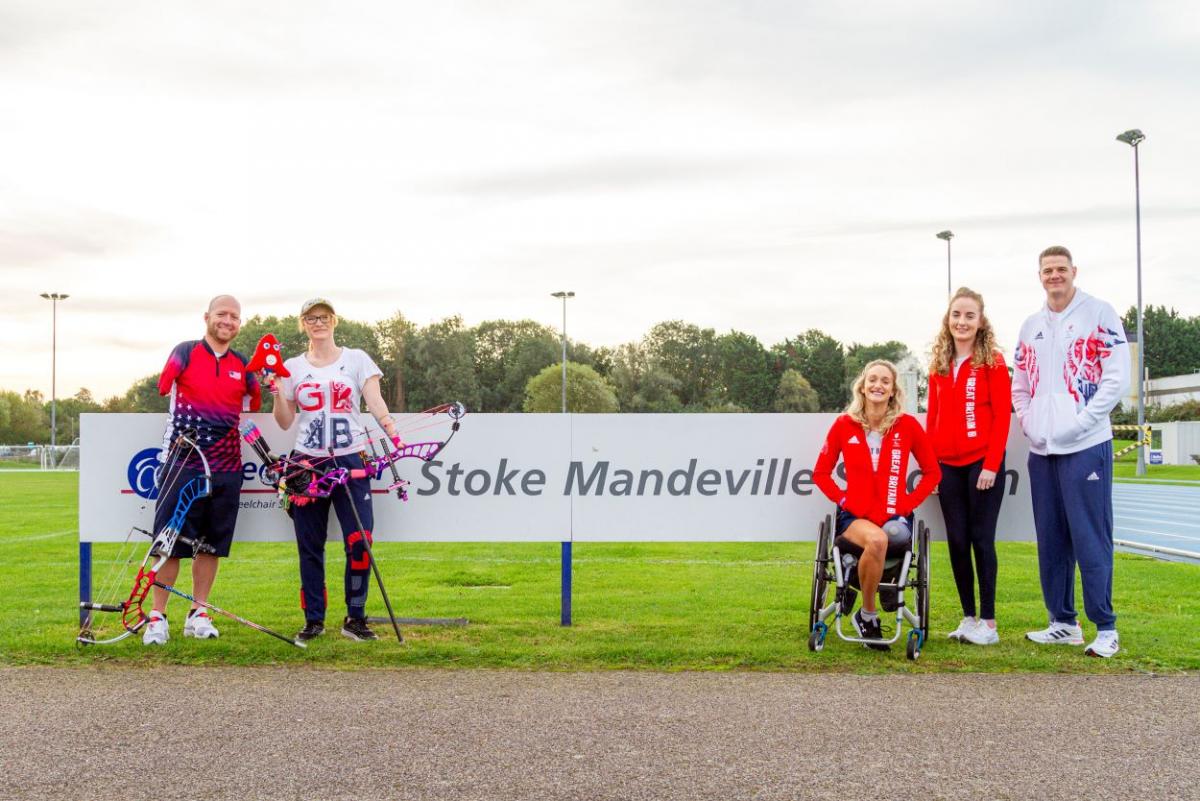
As part of a weekend of international Paralympic celebrations, it has been announced that Stoke Mandeville, the birthplace of Paralympic sport, will be where the Paralympic Flame will be created ahead of each Paralympic Torch Relay from the Paris 2024 Paralympic Games onwards.
The new concept devised by the International Paralympic Committee (IPC), ParalympicsGB, and WheelPower, aims to increase global awareness of the role Stoke Mandeville and Sir Ludwig Guttmann played in the birth and development of the Paralympic Movement.
Stoke Mandeville, which recently celebrated the 75th anniversary of the 1948 Stoke Mandeville Games, marked the start of the London 2012 Paralympic Torch Relay. Since the Sochi 2014 Paralympic Winter Games onwards, the Paralympic Movement’s birthplace has hosted a Heritage Flame Lighting event each Paralympic Games edition. This Heritage Flame has then contributed towards the Paralympic Flame created in the host country of the Games.
In the same way the Olympic Flame is kindled in Olympia, Greece, the plan now is for the Paralympic Flame to be created in Stoke Mandeville, marking the start of the Paralympic Torch Relay.
Stoke Mandeville kicks of a weekend of countdown celebrations for the Paris 2024 Paralympic Games. On Sunday 8 October Paris will host Paralympic Day in the Place de la République and will include performances in 14 Para sports and the presence of a vast list of Paralympians. Paralympic Day is celebrated on the eve of the launch of Paralympic Games ticket sales, which will start on Monday 9 October when 2.8 million tickets will go on sale, without a ballot, on the tickets.paris2024.org platform.
Andrew Parsons, IPC President, said, “It is fitting that 75 years on from those historic first Stoke Mandeville Games and on the eve of ticket sales for the Paris 2024 Paralympic Games we are announcing that Stoke Mandeville will play an even greater role in all future editions of the Paralympic Games.
“The Paralympic Movement owes Stoke Mandeville and Sir Ludwig Guttmann a huge debt of gratitude. What started out as a small-scale sport event in 1948 at the back of a rehabilitation hospital for 16 injured war veterans has now become the world’s third biggest sport event. At the Paris 2024 Paralympic Games 4,350 exceptional athletes from 180 countries will compete in 22 sports, while a cumulative audience of 4.1 billion will watch on TV.
“Through his pioneering techniques, Sir Ludwig changed the world with sport, something that is central to the IPC today. With this new concept for the flame lighting, we want to honour the history of the Paralympic Movement but also highlight the evolution of the Paralympic Games since the first edition in Rome, Italy, in 1960.
“Today, the Paralympic Games is a spectacular sport event and the only global event of impact that puts persons with disabilities front and centre. The transformational legacies the Games also leave in the host country and globally are also truly impressive and act as a catalyst to a more inclusive world for all.
Dave Clarke OBE, CEO of ParalympicsGB, said: “Great Britain is immensely proud to be the birthplace of Paralympic sport and starting the flame’s journey at Stoke Mandeville is fitting recognition of its role as the catalyst for what has grown to be such a powerful global sporting movement.
“At ParalympicsGB we work tirelessly to continue to be at the forefront of the evolution of disability sport as we know that the performances of Paralympic athletes and the positive role models such performances create is one of the best ways of challenging perceptions and breaking down barriers faced by all disabled people.
“ParalympicsGB remains relentlessly focused on ensuring that participation in sport is open to everyone. We believe there is still far more we and wider society can do to improve access to inclusive sporting opportunities so more disabled people can experience the physical, mental, and social benefits of taking part to build on the visionary work Ludwig Guttman began at Stoke Mandeville Hospital 75 years ago.”
Martin McElhatton OBE, Chief Executive of WheelPower, said: “It is wonderful that the role Sir Ludwig and Stoke Mandeville played in igniting the Paralympic Movement will be part of all future Paralympic Games Torch Relays. At WheelPower we continue to use the power of the Paralympics to inspire and encourage disabled people to move more, be active and play sport. We are proud that together with others here in Buckinghamshire and the UK we celebrate the heritage of the Paralympics and the place where it all started in 1948.”
How and when the Paralympic Flame will be created for the Paris 2024 Paralympic Games will be announced in due course.
About Stoke Mandeville and the Paralympic Movement
In 1944, at the request of the British Government, Dr. Ludwig Guttmann opened a spinal injuries centre at the Stoke Mandeville Hospital in Great Britain, and in time, rehabilitation sport evolved to recreational sport and then to competitive sport.
On 29 July 1948, the day of the Opening Ceremony of the London 1948 Olympic Games, Dr. Guttmann organised the first competition for wheelchair athletes which he named the Stoke Mandeville Games, a milestone in Paralympic history. They involved 16 injured servicemen and women who took part in archery.
The Stoke Mandeville Games later became the Paralympic Games which first took place in Rome, Italy, in 1960 featuring 319 athletes from 21 countries. Since then, they have taken place every four years.
The Paralympic Movement is Guttmann’s legacy, and the Paralympic Games showcase his belief that persons with disabilities can achieve elite levels in sport as well as use sport and physical activity to improve their health and wellbeing.





